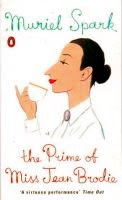
"If you're going to do a thing, you should do it thoroughly. If you're going to be a Christian, you may as well be a Catholic."
~Muriel Spark
Religion is an important theme in the books of writer Muriel Spark, who became a Roman Catholic. In her first novel, The Comforters, Muriel Spark is also a metafictionist. Published in 1957, the book focuses on a young woman, Caroline Rose, who, like Muriel Spark, is both a writer and a converted Catholic. Caroline hears voices in her head, along with a typewriter. (At this point, the quiet voices in my own head dictate that I partake in metawriting, and write a bit about writing. The voices Caroline hears may be just a step beyond a writer's often obsessive thoughts: that certain ideas and words must be written down--at once--before they're gone and forgotten. Thoughts that certain ideas and words need to be recorded, revised, and rearranged--and ultimately read by others. Perhaps this is the plight of the "crazed" writer.) These recurring hallucinations make Caroline question her own sanity. She soon becomes aware that, oddly enough, she is a character in a novel, and that the voices she hears are tied to the future.
Muriel Spark presents fiction about fiction with finesse. I think a lesser writer would not be able to carry this off nearly as well as she does. I could hear the typewriter clicking and tapping in the background as I read this novel about a character in a novel who's also a character in a novel. Additionally, Caroline is writing a book called, Form in the Modern Novel, but is struggling with the section on realism (one of countless perfect details by Spark). Instead of being able to focus on her writing, these voices interfere with Caroline's ability to write, because of her worry that she's going mad and an eerie awareness that she's a character in a book. It may sound confusing and hard to follow, but it really isn't, because the voices are italicized. I was thoroughly entertained by this masterful novel. The Comforters is metafiction in its prime.


















